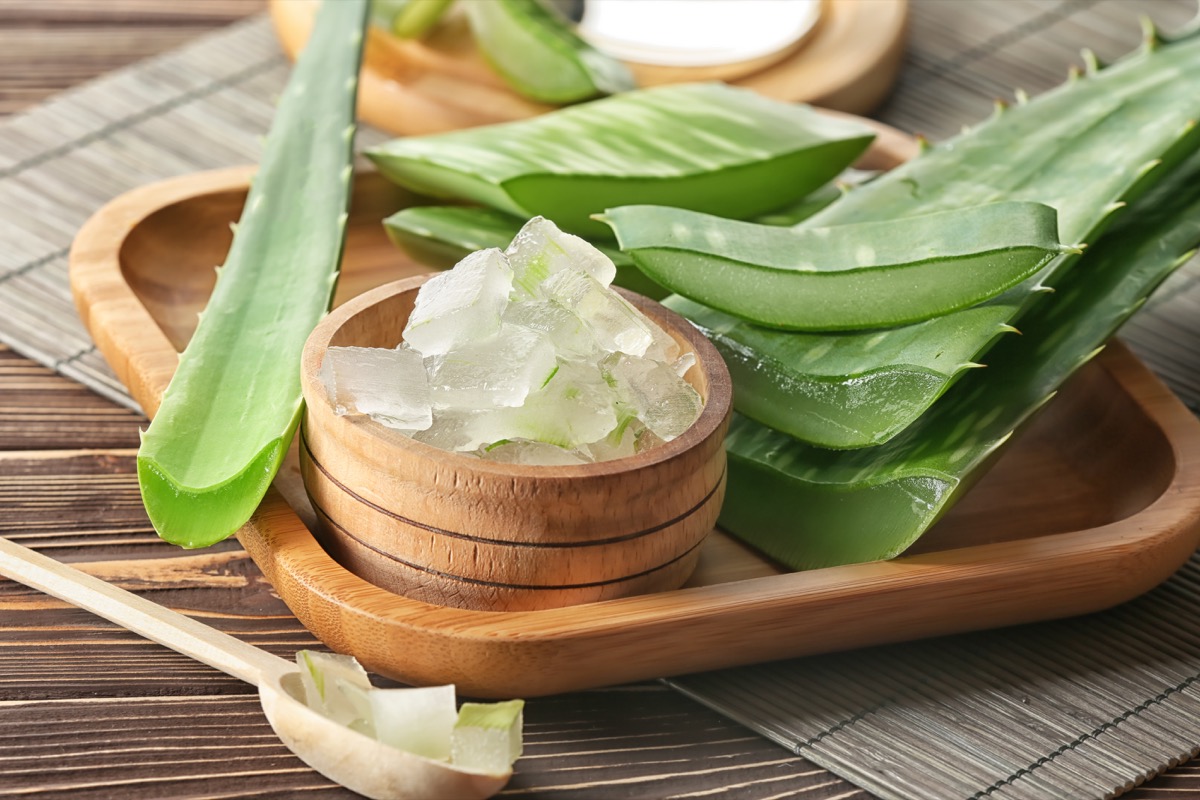Most people are familiar with aloe-vera gel for soothing a nasty case of sunburn after forgetting to apply sunscreen, or not applying enough. Because of its ability to bring rapid relief from sunburn pain, many people have wondered what other benefits aloe-vera gel might have.
Aloe-vera gel is an all-natural preparation that can provide several benefits to your skin. In addition to calming an anger sunburn, aloe-vera gel can aid in fighting acne, help to prevent dark spots and has the potential to slow down the signs of aging, when used regularly.
Aloe vera is a type of cactus that has been used for centuries for its medicinal value in treating a wide array of skin conditions including burns, frostbite, eczema, psoriasis and cold sores. Joel Schlessinger, MD, a board-certified dermatologist and cosmetic surgeon in Omaha, explains the aloe-vera plant stores large amounts of water in its stem that allows the plant to generate and store a clear, gel-like substance in its leaves. This gel contains antioxidants, vitamins, minerals and several amino acids.

A study published in the International Journal of Research and Medical Sciences reports that the triangular leaf of the aloe-vera plant is made up of three layers, with the innermost layer containing the gel. While it is 99 percent water, the gel holds approximately 75 potentially active ingredients. The skin is removed from the leaf, either by hand or machine, and the pulp is then cold-pressed to keep the active ingredients from going inert.
So does all this mean you should make aloe-vera gel a permanent part in your skin-care regiment? Though the research on the direct benefits of aloe-vera gel is currently limited, studies have shown that the compounds in the gel, like vitamins C and E, do have a positive effect on skin conditions. Even though aloe-vera gel may not correct skin conditions by itself, the gel has the potential to help speed the healing process when used in conjunction with other skin-care products.
One reason aloe-vera gel doesn’t have more hard data to support its use is it contains so many known beneficial ingredients that can improve skin conditions it’s difficult to isolate which of these compounds are involved in producing results. Additionally, different studies tend to use different aloe-vera compounds, making the studies hard to replicate and compare the research findings. Additionally, Schlessinger points out that the biochemistry of aloe-vera gel does show anti-fungal, anti-viral as well as cell-regenerative properties. Many doctors believe that combining the gel with other skin-care preparations may prove to be helpful in fighting skin conditions. Here are eight reasons why dermatologists want you to rub aloe-vera gel on your face:
Tap below to continue!
More from Things Health
-
Could Your Marriage be Playing a Role in Your Health?
Ah, marriage. Whether you are married, know someone who is married or have seen married couples, you know that there are both good times and…
-
Older women taking statins face higher risk of diabetes
Older Australian women taking cholesterol-lowering statins face a significantly increased risk of developing diabetes, according to a University of Queensland study. UQ School of Public…
-
9 Signs Your Loved One Might Have Alzheimer's Disease
According to the Alzheimer's Association there are over 5 million Americans who suffer from Alzheimer's disease, most of whom are over the age of 65.…
-
Essential Tips For Managing Diabetes
Diabetes can attack anyone, from toddlers to grown-ups. By definition, this is a disease which affects the ability of your body to produce or use…
-
10 Addictions that Could Be Affecting Your Life
You’re out for dinner with a friend, but are you catching up with them, or spending your time on Facebook, Twitter or Instagram? Today it’s…






